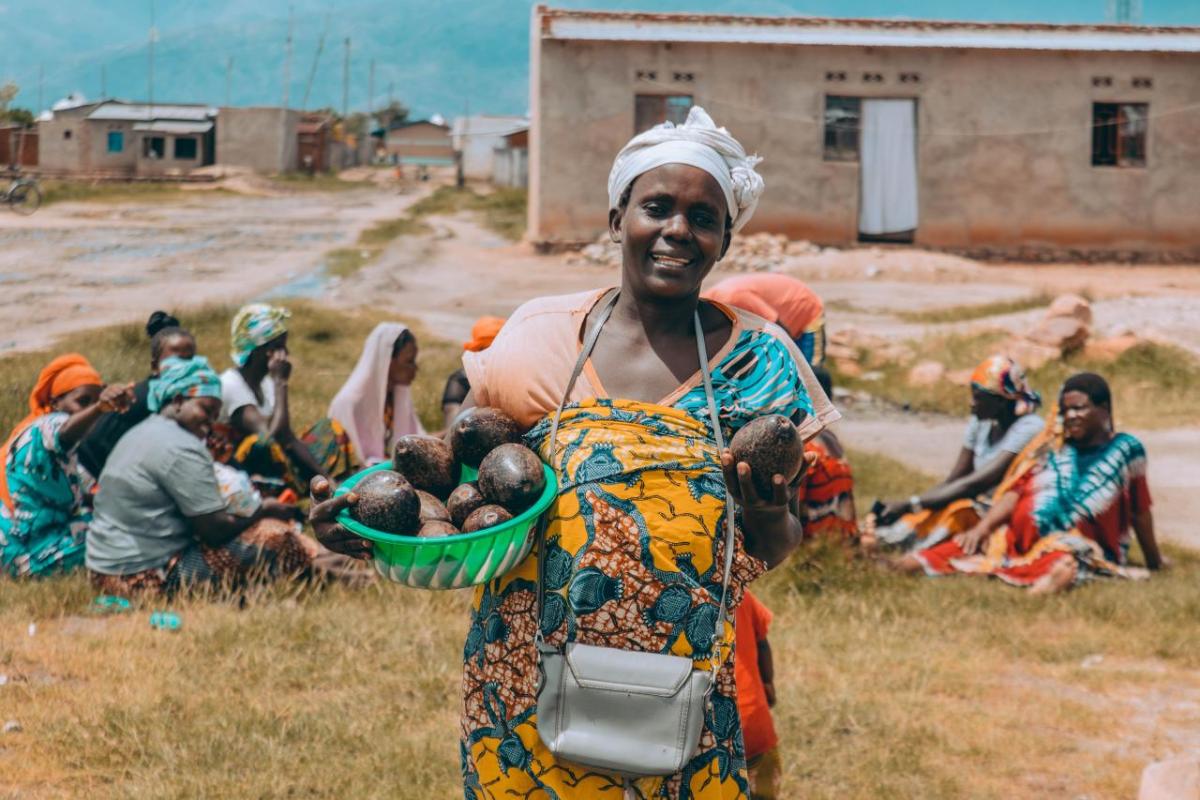Insights From Women at the Forefront of Crises in Burundi

Judith Nijimbere and her family of twelve face multiple challenges, including flooding that has destroyed her house. Judith talks about the devastating impact of the flood in her community, “the flood destroyed hundreds of households, including mine, and we were forced to move, and the flood also wiped out my crops of sweet potatoes, rice and vegetables.”
The government of Burundi has declared a humanitarian crisis you may not have seen in the midst of all the crises in the world. Double-digit food price inflation, 1.23 million people facing food insecurity, conflict in DRC impacting trade, and more than 200,000 people displaced: the crises in Burundi barely get enough attention globally. In fact, Burundi is the third in the list of most under-reported crises. If you haven’t been following the situation in Burundi, here are 4 things women in Burundi want you to know.
- Women are facing limited livelihood options and higher safety risks. Compared to studies CARE conducted during COVID-19 (2020-2022), the 2023 results show that the impact on livelihood tripled, and the report on food insecurity increased by twenty times, indicating worsening conditions in the last two years. This escalation underscores the urgent need for action.
- Leopoldine Sindayirakiye said "I used to sell avocados in DRC and bigger markets. Due to the flood and closure of the border, I had to stop. The border re-opened but they now ask us for a passport, which is both expensive and difficult to acquire, I can't afford that."
- Judith said the two most pressing crises in her life right now are the flood and increasing prices on necessities; she said, “The prices of goods and other necessities on the market have risen while our income is declining. The war next door in the DRC severely restricts trade between us and our Congolese neighbors, which means the cross-border trade I used to do a few years ago is limited now, further limiting my source of income.”
- Livelihood impacts have huge repercussions on people’s lives. The impact goes beyond incomes. It impacts every aspect of women’s lives. “My previous income was enough to sustain my family, and I used to work till 6 pm and still have time with my kids in the evening. I now sell peanuts in the village, and I can't stop working, I need money to afford the rent and basic food at home. By the time I get home, I am exhausted, and the kids are asleep, so we don't spend time together.”- Leopoldine Sindayirakiye
- Reduced livelihood is affecting household access to food and essential services such as health and education. The impact of climate change is also leaving many women homeless, putting them and girls at a higher risk and in a vulnerable situation.
- Women are at the forefront of crises in Burundi. Despite the multiple challenges they face, they work hard to provide for their families and children. They organize community events to share information and take action on climate issues. For example, Judith and her savings group build barriers around the river to reduce flood impacts. Her group also raises awareness about preventing and addressing waterborne diseases. Other savings groups are also leading efforts to channel rainwater direction to prevent soil and crop erosion. Women and women's groups in Burundi are actively leading the fight against climate change on the ground, yet they are often excluded from decision-making processes.
- Women are asking for support, not handouts! “If we could get access to finance or financial support, we could start over, and rebuild our small business.” Jacqueline Uwimana, 38 years old and mother of seven; VSLA Chairperson, Gatumba Province, Burundi.
- They highlighted the support they need to restore their livelihoods, including assistance with improved agricultural practices, such as improved seeds and farming techniques to help them adapt to frequent climate disasters affecting their agriculture. Additionally, they expressed a need for tailor-made and flexible financial access to meet growing market demand. In terms of agriculture, they emphasized the importance of support through automated irrigation systems and expert agriculture extension services to help them build resilient farming techniques and mechanisms to adapt to the changing climate. Respondents also noted that food is their urgent need, and improved services, particularly health services, are critical to respond to increasing cases of illness, especially to address children’s health.
Burundi is vulnerable to climate change and is ranked the 22nd most vulnerable to climate change in the world. Floods, drought, landslides, heavy rain, and storms frequently affect the country, affecting most of the population dependent on agriculture and causing displacement. Since September 2023, the El Nino weather phenomenon exacerbated climate change disaster in the country; between September 2023 and April 2024, over 200,000 people lives are affected by flooding, landslides, violent winds and hail, and the number of internally displaced persons increased by 25% to 96,000. Majority of the displacements in the country, 90% is due to natural disaster related reasons. The situation has been worsened by the rising level of Lake Tanganyika, and increasing cases of cholera have been reported and landslides are expected to continue on unstable grounds that accumulated a lot of rainwater. The he Government of Burundi has officially declared the humanitarian crisis.
Methodology: CARE's Women Respond data from 500 members of Village Savings and Loan Associations 438 women) in Burundi shows a similar trend. The result shows that most are facing challenges related to food insecurity, climate change, conflict, and lack of clean water, leading to loss of livelihood and limited access to basic services. Through qualitative interviews, women noted that worsening livelihood conditions are pushing many in their communities into poverty.

